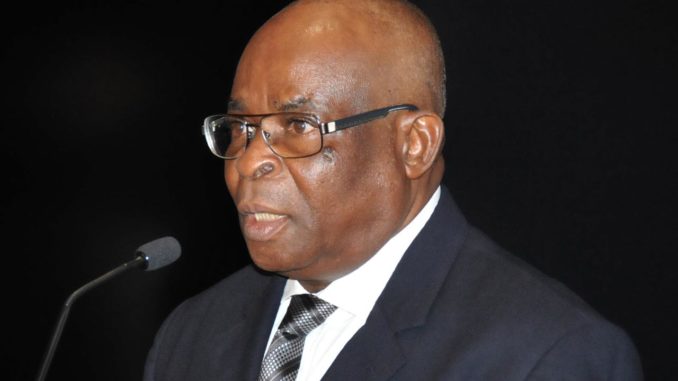
The Presidency has reacted to the conviction of former Chief Justice of Nigeria, Walter Onnoghen, by the Code of Conduct Tribunal, saying the ruling was a major victory for the anti-corruption policy of the Buhari administration.
Mr Onnoghen was convicted on Thursday afternoon for false declaration of assets.
The tribunal ordered that he forfeit the money in the five accounts he failed to declare in his assets declaration form.
The tribunal ordered his removal from office and declared that he should not be allowed to hold public office in the next 10 years.
Mr Onnoghen, who denied the charges against him, has appealed the ruling.
In his appeal, Mr Onnoghen identified 16 grounds on which basis he wants the appellate court to upturn his conviction.
He also sought seven reliefs from the court including “an order setting aside the conviction of the appellant (Mr Onnoghen).”
Reacting to the verdict on Thursday, the Presidency in a statement by spokesperson Garba Shehu said the outcome of the trial “demonstrates clearly that the law is no respecter of persons, titles, social or political connections”.
The statement added that the essence of the rule of law is to hold everyone accountable equally before the law, regardless of their high or law status in the society.
According to the Presidency, the war against corruption is “all encompassing and is not designed to persecute anyone for political or other reasons”.
“The rule of law would lose its meaning and validity if only the weak, the poor and powerless are punished for their violations of the law. Countries succeed because the rule of law is evenly upheld and enforced. The war against corruption would go nowhere if the high and mighty are spared because of their influence and connections. You can’t fight corruption by allowing impunity because the rule of law cannot function where impunity is tolerated,” Mr Shehu wrote.
The statement said that the conviction of Justice Onnoghen should send a clear message that the dragnet against corruption will be spread widely to hold public officials accountable, whether they are politicians, Judges, civil servants or holding positions of public trust.
END

Be the first to comment